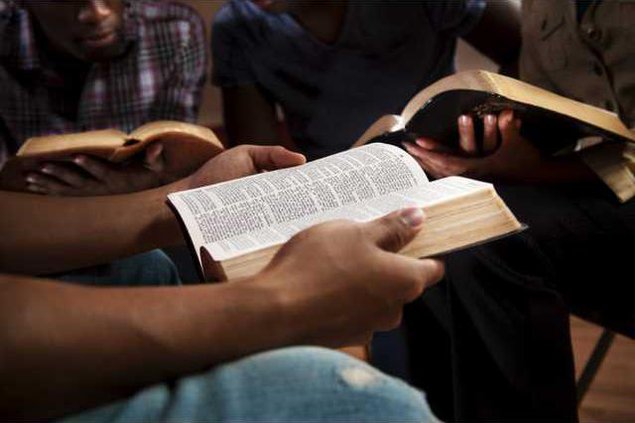In America's largest metropolitan markets people are more likely to be either Roman Catholic or religiously unaffiliated than to hold any other faith tradition, the Public Religion Research Institute reported in an analysis released this week.
Looking over data for the top 30 American cities, PRRI's American Values Atlas provided the results showing big cities draw both Catholics and the so-called "nones" or unaffiliated, in droves. However, the survey noted, "only Nashville, Charlotte, Indianapolis, Kansas City and Atlanta dont have Catholics among the top three" religious communities. Evangelicals predominate in Nashville, Tennessee; Charlotte, North Carolina; and Kansas City, Missouri, while black Protestants are the top group in Atlanta.
Portland, Oregon, came in with the highest number of the religiously unaffiliated, and that might not be surprising for a state that consistently ranks in the bottom 10 of American states that are either least religious or have the lowest percentage of frequent church-attenders, according to research by the Gallup organization. The city also came in 13th on a roster of America's "top churchless cities" complied by the Barna Group.
Three East Coast cities came in as having the top concentrations of Jewish residents in the PRRI data, New York's Jewish Week newspaper reported.
"Eight percent of New York City area residents are Jewish, followed by the Boston area at 6 percent and metropolitan Miami at 5 percent, according to the data. Metro Philadelphia and the San Francisco area each are 4 percent Jewish, and the Chicago and Washington areas are 3 percent Jewish," the newspaper said.
The PRRI findings mirror, in some respect, similar data from the Pew Research Center in May, which reported a dramatic rise in the unaffiliated.
Pew researcher Greg Smith explained if the numbers of "nones" are on the upswing, there are losses for other groups.
"If the religiously unaffiliated are growing, and non-Christian faiths are growing, it follows that another group is declining, and that's the Christian population," Smith told the Deseret News at the time. He added, "the United States remains home to more Christians than anywhere else in the world, but 7 in 10 Americans identify as Christians" now, versus nearly 8 in 10 before.
Not everyone is willing to grant a sudden drop in Christian adherence, however. LifeWay Research president Ed Stetzer, writing for the ChristianityToday.com website, said previously "nominal" Christians people who listed a given affiliation but were not active participants in that faith have instead become "honest reporters" of their status.
"Christianity is losing, and will continue to lose, its home-field advantage; no one can (or should) deny this," Stetzer wrote. "However, the numerical decline of self-identified American Christianity is more of a purifying bloodletting than it is an arrow to the heart of the church."
Looking over data for the top 30 American cities, PRRI's American Values Atlas provided the results showing big cities draw both Catholics and the so-called "nones" or unaffiliated, in droves. However, the survey noted, "only Nashville, Charlotte, Indianapolis, Kansas City and Atlanta dont have Catholics among the top three" religious communities. Evangelicals predominate in Nashville, Tennessee; Charlotte, North Carolina; and Kansas City, Missouri, while black Protestants are the top group in Atlanta.
Portland, Oregon, came in with the highest number of the religiously unaffiliated, and that might not be surprising for a state that consistently ranks in the bottom 10 of American states that are either least religious or have the lowest percentage of frequent church-attenders, according to research by the Gallup organization. The city also came in 13th on a roster of America's "top churchless cities" complied by the Barna Group.
Three East Coast cities came in as having the top concentrations of Jewish residents in the PRRI data, New York's Jewish Week newspaper reported.
"Eight percent of New York City area residents are Jewish, followed by the Boston area at 6 percent and metropolitan Miami at 5 percent, according to the data. Metro Philadelphia and the San Francisco area each are 4 percent Jewish, and the Chicago and Washington areas are 3 percent Jewish," the newspaper said.
The PRRI findings mirror, in some respect, similar data from the Pew Research Center in May, which reported a dramatic rise in the unaffiliated.
Pew researcher Greg Smith explained if the numbers of "nones" are on the upswing, there are losses for other groups.
"If the religiously unaffiliated are growing, and non-Christian faiths are growing, it follows that another group is declining, and that's the Christian population," Smith told the Deseret News at the time. He added, "the United States remains home to more Christians than anywhere else in the world, but 7 in 10 Americans identify as Christians" now, versus nearly 8 in 10 before.
Not everyone is willing to grant a sudden drop in Christian adherence, however. LifeWay Research president Ed Stetzer, writing for the ChristianityToday.com website, said previously "nominal" Christians people who listed a given affiliation but were not active participants in that faith have instead become "honest reporters" of their status.
"Christianity is losing, and will continue to lose, its home-field advantage; no one can (or should) deny this," Stetzer wrote. "However, the numerical decline of self-identified American Christianity is more of a purifying bloodletting than it is an arrow to the heart of the church."

